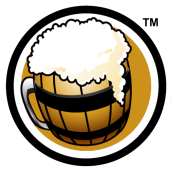




{{ reading.comment }}
| Amount | Fermentable | Cost | PPG | °L | Bill % |
|---|---|---|---|---|---|
| 10.50 lb | Rahr - Standard 2-Row10.5 lb Standard 2-Row |
$ 2.19 / lb $ 23.00 |
36.8 | 1.8 | 64.6% |
| 3 lb | Weyermann - Barke Vienna3 lb Barke Vienna |
$ 2.49 / lb $ 7.47 |
36 | 3.4 | 18.5% |
| 1 lb | Flaked Oats1 lb Flaked Oats |
$ 0.00 / lb $ 0.00 |
33 | 2.2 | 6.2% |
| 0.50 lb | Briess - Carapils Malt0.5 lb Carapils Malt |
$ 2.49 / lb $ 1.25 |
34.5 | 1.5 | 3.1% |
| 0.25 lb | Simpsons - Crystal Medium0.25 lb Crystal Medium |
$ 1.69 / lb $ 0.42 |
33 | 65.01 | 1.5% |
| 1 lb | Corn Sugar - Dextrose1 lb Corn Sugar - Dextrose - (late boil kettle addition) |
$ 3.49 / lb $ 3.49 |
42 | 0.5 | 6.2% |
| 16.25 lbs / $ 35.62 | |||||
| Amount | Variety | Cost | Type | AA | Use | Time | IBU | Bill % |
|---|---|---|---|---|---|---|---|---|
| 1 oz | Columbus1 oz Columbus Hops |
$ 2.19 / oz $ 2.19 |
Pellet | 13.9 | Boil | 60 min | 44.85 | 12.5% |
| 1 oz | Citra1 oz Citra Hops |
$ 3.69 / oz $ 3.69 |
Pellet | 13.5 | Boil | 15 min | 21.61 | 12.5% |
| 4 oz | Citra4 oz Citra Hops |
$ 3.69 / oz $ 14.76 |
Pellet | 13.5 | Whirlpool at 180 °F | 10 min | 25 | 50% |
| 2 oz | Citra2 oz Citra Hops |
$ 0.00 / oz $ 0.00 |
Pellet | 13.5 | Dry Hop | Day 4 | 25% | |
| 8 oz / $ 20.64 | ||||||||
| Amount | Variety | Cost | IBU | Bill % |
|---|---|---|---|---|
| 1 oz | Columbus (Pellet) 0.99999999771257 oz Columbus (Pellet) Hops |
$ 2.19 / oz $ 2.19 |
44.85 | 12.5% |
| 7 oz | Citra (Pellet) 6.999999983988 oz Citra (Pellet) Hops |
$ 3.69 / oz $ 25.83 |
46.61 | 87.5% |
| 8 oz / $ 28.02 | ||||
| Amount | Description | Type | Start Temp | Target Temp | Time |
|---|---|---|---|---|---|
| 8.12 gal | Strike | 153 °F | 152 °F | 60 min |
| Amount | Name | Cost | Type | Use | Time |
|---|---|---|---|---|---|
| 2.40 g | Calcium Chloride (dihydrate) |
$ 0.00 / oz $ 0.00 |
Water Agt | Mash | 1 hr. |
| 2 g | Epsom Salt |
$ 0.00 / oz $ 0.00 |
Water Agt | Mash | 1 hr. |
| 6.30 g | Gypsum |
$ 0.00 / oz $ 0.00 |
Water Agt | Mash | 1 hr. |
| 3.73 ml | Lactic acid |
$ 0.00 / oz $ 0.00 |
Water Agt | Mash | 1 hr. |
| 4 g | Ascorbic Acid |
$ 0.00 / oz $ 0.00 |
Water Agt | Mash | 0 min. |
| 2.20 g | Yeast Nutrient |
$ 0.00 / oz $ 0.00 |
Other | Boil | 10 min. |
| 0.50 each | Whirlfloc |
$ 0.00 / oz $ 0.00 |
Water Agt | Boil | 10 min. |
| 10 ml | White Labs - Clarity Ferm WLN4000 |
$ 0.00 / oz $ 0.00 |
Fining | Primary | 0 min. |
| 1 each | Campden Tablet |
$ 0.00 / oz $ 0.00 |
Water Agt | Other | 0 min. |
| Omega Yeast Labs - DIPA Ale OYL-052 | ||||||||||||||||
|---|---|---|---|---|---|---|---|---|---|---|---|---|---|---|---|---|
|
||||||||||||||||
| $ 12.99 Yeast Pitch Rate and Starter Calculator |
| Method: co2 Amount: 12.29 psi Temp: 38 °F CO2 Level: 2.6 Volumes |
| Ca+2 | Mg+2 | Na+ | Cl- | SO4-2 | HCO3- |
|---|---|---|---|---|---|
| 75 | 5 | 10 | 50 | 150 | 0 |
| Mash Chemistry and Brewing Water Calculator | |||||
Northern Brewer: "Double IPA, Fermentation Range: 60 - 73 F,
OG: 1.074, (FG: 1.011, 84% Apparent Attenuation), SRM: 7,
IBUs: 88, ABV: 8.3%"
Omega Yeast OYL-406 Little DIPA Yeast, optimum temperature 65 - 72 degF, Northern Brewer optimum temperature 60 - 72 degF.
NB: “Little DIPA is a Thiolized version of the 'Conan' strain DIPA Ale, widely used for DIPAs & NEIPAs. Little DIPA pairs its signature pear ring & apricot aromas with robust thiols & boosts your hoppy beers. Expect no diacetyl production. Similar to Omega's + Series yeast (formerly called DKO Series) Little DIPA is engineered to knock out the formation of diacetyl before it even starts.”
After the boil, begin whirlpool, add hops (4 ounces Citra) and let rest for 30 minutes before chilling. Chill to about 78 degF, transfer to CF5, finish cooling to about 65degF, aerate, & pitch yeast. Ferment @ 68degF for 7 to 10 days (until primary fermentation is complete) then cool to 55degF, dump yeast (when settled). Add dry hops (2 ounces Citra) and let sit for 4 to 6 days total (2 - 3 days at 55 to 57degF, 2 - 3 days cold crash at approx. 35 to 37degF) before kegging.
Lawson’s Finest Liquids Double Sunshine Clone
[Brew Your Own] Step by Step (All Grain)
“Mix the crushed Vienna, flaked oats and caramunich type malts into 2 gallons (7.6 L) water to achieve a mash temperature of 152 °F (67 °C) then hold at this temperature for 45 minutes. Rinse the grains with 2.5 qts (2.4 L) hot water, add liquid extract and bring to a boil. Top off kettle to 6.5 gallons (25 L). Boil for 60 minutes, adding the hops as instructed and the corn sugar with 10 minutes left in the boil. After boil is complete, begin a whirlpool in the kettle and let the knockout hops rest in the hot wort for at least 30 minutes before chilling.
Chill the wort rapidly to 68 °F (20 °C). Ferment at 68 °F (20 °C) for one week. Cool to 55 °F (13 °C) to settle yeast. Dump the yeast from the bottom of fermenter, or rack to a clean, sanitized vessel. Add the dry hops and let the beer sit on for an additional four to seven days at 55–57 °F (13–14 °C). Rack into a keg, or into bottles with priming sugar.
Tips for Success:
Having a strong and healthy fermentation as well as following good practices during downstream beer handling are key to trying to replicate a beer like Double Sunshine IPA. Be sure to run a clean fermentation and you also need to make sure oxygen has no chance for uptake post fermentation.
Make a yeast starter a day ahead of your brew day to generate a healthy population of yeast before pitching. Visit https://byo.com/yeaststarter for more information about making a yeast starter, as well as a table for recommended starter sizes for a variety of worts. Visit www.mrmalty.com for a useful pitching rate calculator.
Hop compounds are also especially sensitive to oxidation and their flavors diminish quickly when exposed to oxygen, so make sure you are either flushing the receiving vessel with CO2 or using a closed transfer system when you transfer your beer from vessel to vessel.
Sean Lawson advises homebrewers to “determine if you have hard or soft water. I recommend John Palmer’s How to Brew for reference. If you have hard water, then cut by at least half with distilled or reverse osmosis (RO). With soft water, a basic guideline for IPAs would be to add equal parts gypsum and calcium chloride to bring total calcium content over 50 ppm.” If you homebrew with a water source that is chlorinated, one Campden tablet in 20 gallons (76 L) of water (left overnight) will rid your water of chlorine compounds that can lead to off flavors in your beer.
For all-grain brewers, a handful of rice hulls in the mash may help you if your brew setup is prone to a stuck mash. Rice hulls are a great tool when using moderate to high percentages of gummy grains such as flaked oats.”

System Default
| Cost $ | Cost % | |
|---|---|---|
| Fermentables | $ | |
| Steeping Grains (Extract Only) |
$ | |
| Hops | $ | |
| Yeast | $ | |
| Other | $ | |
| Cost Per Barrel | $ 0.00 | |
| Cost Per Pint | $ 0.00 | |
| Total Cost | $ 0.00 |

